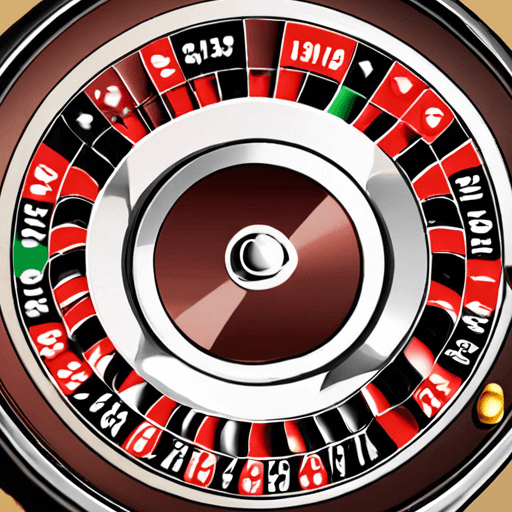For centuries, gamblers have been allured by the seemingly uncrackable code of roulette. Numerous strategies and systems have been developed, touted as fool-proof ways to overcome the house edge. With the advent of technology, a fascinating tool has emerged in the form of roulette prediction computers. But, can they really help you win? Let's delve into this intriguing subject.
Understanding Roulette Prediction Computers
Roulette prediction computers are essentially electronic devices, often disguised as smartphone applications, designed to predict the outcome of roulette spins[^1^][^4^]. Their primary function is to measure the speed of the roulette wheel and the ball to calculate and forecast where the ball will eventually land[^2^][^4^].
The underlying principle of these computers is simple, but does their simplicity translate into efficacy?
^1^: Reference 1 ^2^: Reference 2 ^4^: Reference 4
The Science Behind Roulette Computers
Roulette computers operate on two main principles. The first is the 'Dominant Diamonds' principle[^1^][^4^]. This principle suggests that the ball tends to hit specific diamonds – small deflective obstacles on the wheel – more frequently than others[^1^].
The second principle is the 'Predictable Ball Bounce'[^1^]. Contrary to popular belief, the bounce of the roulette ball isn't entirely random. If you can predict where the ball will first hit the pockets, you can estimate where it might land[^1^][^4^].
The effectiveness of a roulette computer lies in its ability to make accurate predictions within the short window before the ball drops[^1^][^4^].
Roulette Computers: A Historical Perspective
Interestingly, the concept of roulette computers is not new. Back in the 1970s, a mathematician, J. Doyne Farmer, built a machine that successfully skewed the odds of roulette, leading him to be banned from all casinos in Nevada[^5^]. However, when he tried to replicate his success in the 1990s, he found his method no longer worked[^6^].
Fast forward to 2004, a group of Eastern European gamblers used a roulette computer to win £1.3 million at the Ritz Casino in London[^4^][^7^]. Their success, however, was largely due to outdated gambling regulations rather than the efficacy of their device[^4^].
The Roulette Computer Controversy: Legality and Casino Policies
The question of whether it's legal to use roulette computers is dependent on the jurisdiction[^4^][^8^]. While they are banned in the UK and the USA, they are legal in about half of the world's casinos[^8^].
Regardless of the legality, no casino willingly allows the use of these devices[^4^][^8^]. If caught using one, you'll likely be banned for life[^4^]. Interestingly, players who win large sums using these devices often attract unwanted attention, leading to their discovery[^2^][^7^].
The Roulette Computer Myth: Do They Really Work?
The effectiveness of roulette computers is a contentious topic. While some argue they can easily beat modern roulette wheels[^1^][^4^], others contend that they are ineffective on contemporary wheels[^2^][^6^].
A study published in the journal Chaos suggested that roulette computers could indeed predict the outcome of a roulette game[^5^]. The researchers claimed that by recording the wheel and ball's speed, they could predict where the ball would fall with 59% accuracy[^5^].
However, other experts argue that the unpredictability of the ball's bounce and the random nature of each spin make predictions unreliable[^6^][^7^].
Online Roulette: A New Frontier for Roulette Computers?
Online roulette presents a different challenge for roulette computers[^3^][^4^]. Unlike land-based roulette, online roulette games use a Random Number Generator (RNG) to determine the outcome[^3^][^4^]. This software generates a random number that corresponds to a specific outcome, making predictions virtually impossible[^3^][^7^].
Despite this, some gamblers believe that live roulette games could theoretically be beaten with roulette computers[^8^]. However, since casinos control the webcam feed, they can easily guard against these devices[^8^].
The Roulette Computer Market: A Breeding Ground for Scams
Given the allure of beating the casino, it's no surprise that the market is rife with potentially fraudulent roulette computers[^4^][^8^]. These devices promise guaranteed results and extraordinary profits[^8^].
However, the reality is quite different[^8^]. Authentic roulette computers require sophisticated technology and are expensive[^1^][^4^]. Any device promising exceptional results at a low price is likely a scam[^4^][^8^].
Roulette Prediction Computers: The Verdict
The debate surrounding the effectiveness of roulette computers is far from settled. While some swear by their efficacy, others dismiss them as nothing more than cleverly marketed scams[^4^][^8^].
The consensus, however, is that predicting roulette outcomes, whether in a physical or online casino, is primarily a game of chance[^3^][^6^][^7^]. While roulette computers may offer some advantages, they should not be relied upon as a guaranteed way to beat the house[^4^][^8^].
In the end, the thrill of the game lies in its unpredictability and the suspense of not knowing where the ball will land[^6^]. As the saying goes, "the only sure-fire way to win is not to play"[^5^].
Conclusion: Play Responsibly
Roulette is a game of chance, and while the allure of beating the house is strong, it's essential to play responsibly. Whether you choose to use a roulette computer or not, remember that the primary purpose of gambling is to enjoy the thrill of the game[^7^][^8^]. Always set limits for yourself, only bet what you can afford to lose, and most importantly, have fun[^7^][^8^].

